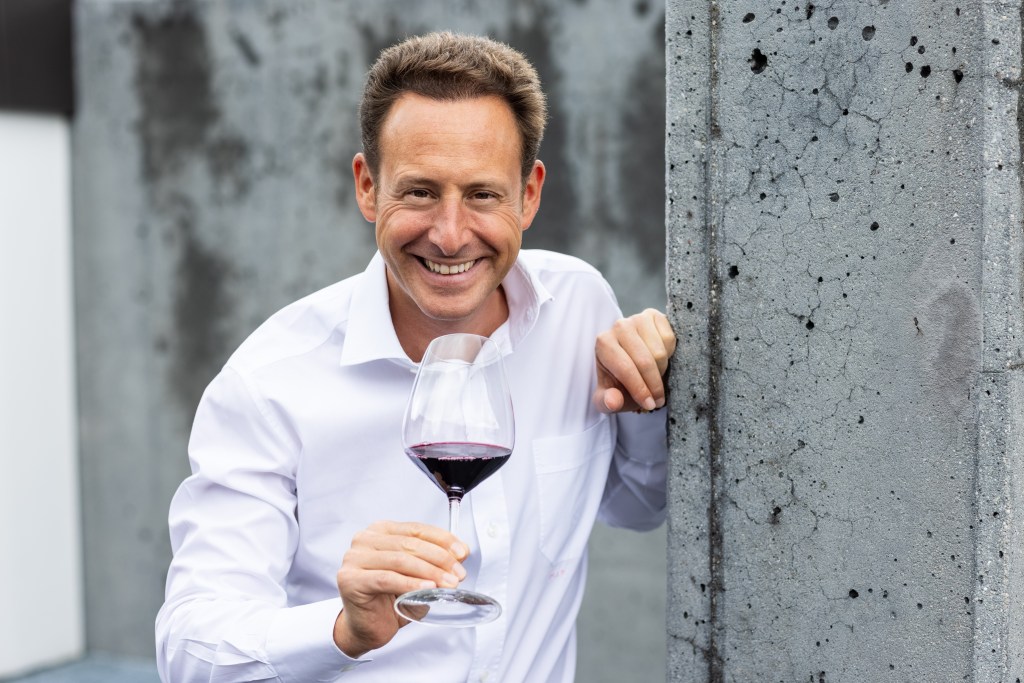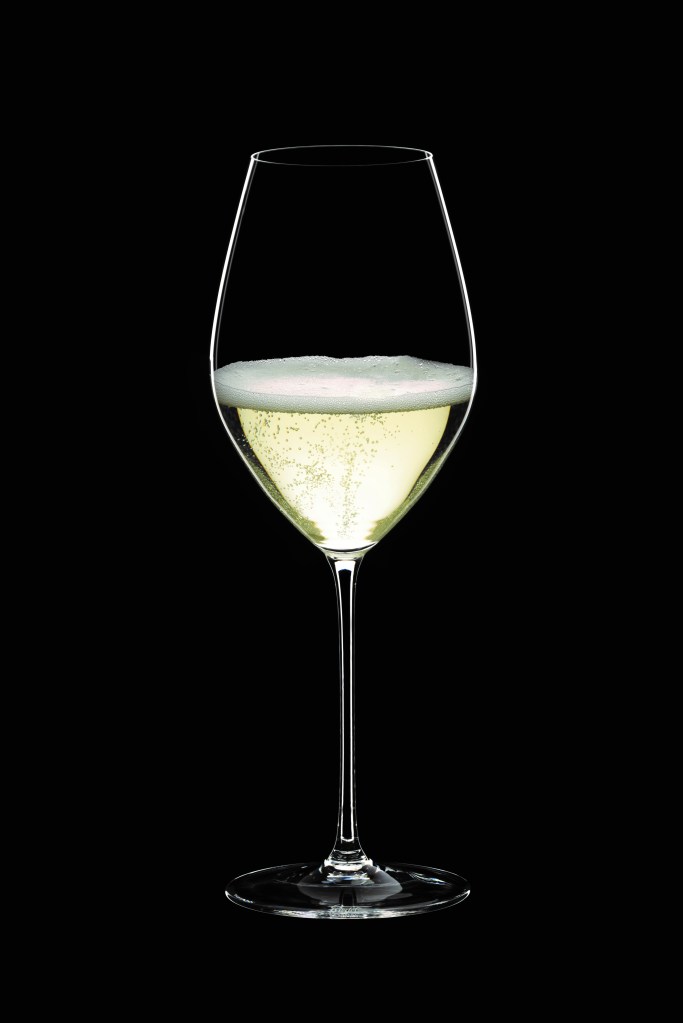Maximilian Riedel is RIEDEL’s 11th-generation chief executive officer – the world-renowned luxury glassware business with Austrian roots. Riedel reveals the challenges the 266-year-old business faces – and the opportunities.

Maximilian Riedel isn’t a regular CEO – he is a cool CEO. His personal Instagram page, which boasts nearly 230,000 followers (his company, RIEDEL, has about 40k fewer), is riddled with content that wants you to know just that.
There’s him counting down to midnight on New Year’s Eve in Tokyo to the Top Gun theme song, decanting a bottle of Chateau Cheval Blanc 1999 with his face painted like a skull on Halloween; he’s even water skiing holding three RIEDEL glasses on a tray to the tune of Dr Dre’s Still Dre.
“Not many CEOs do it,” he says. “But not many CEOs carry the brand’s name as a last name.”
In 1756 in Kufstein, Austria, RIEDEL was founded by Johann Leopold Riedel. Initially, the company focused on decorative glassware, but over generations has turned to luxury wine-specific wine glasses and decanters. Max is the business’ 11th generation chief executive officer – a position he inherited from his father and his father from his father.
“I was brought up to run the business,” Riedel says. “That’s the biggest cross I’m carrying on my shoulder – to pass it on to the 12th generation. That’s a lot of stress because you can’t sit and hope – you must continue building it and carry it into the now and the future, including social media and everything around it.”
Riedel’s journey at the family business started in 1997, after several internships – including one as the first intern in the history of Tiffany & Co (talk about nepo babies). He started in the family business at 18, training in the Austrian headquarters. He then moved to Paris, spending time with RIEDEL’s French importer, Ecruis. At 23, he upped and moved to the US to become Vice President of Riedel Crystal of America. Two years later, he was CEO of the American division. In 2013, Riedel was handed the reins to the entire company and its worldwide subsidiaries.
On the 9th of January, Riedel arrived in Australia to find the perfect glass for a Jansz Tasmanian sparkling. But when we speak, Riedel brings good news: there’s an existing glass that does the job, the RIEDEL Veritas Champagne Wine Glass.
“With the trade war in China, we can’t get containers… These are the obstacles that a modern entrepreneur has to deal with. And if you don’t include it in your price, you go out of business.”
– Maximilian Riedel, CEO of RIEDEL
“We had a clear winner – we tried different styles and had 16 participants, many of whom were professionals. It went to a vote by raising their hands, and they selected the champagne wine glass, a development of mine and launched a few years back to replace the flute.”

Riedel says the narrow rim diameter places the wine at the tip of your tongue, which emphasises the fruit and balances the acidity of the sparkling. But he knows the masses are not aware of the glass’s impact on the wine – and he knows luxury glassware is struggling.
“Wine can be a fairly boring subject – especially when you’re new to it. And even worse is glass. How can you sell glassware? That’s the reason the whole glass industry is in trouble.”
This is why he spends 200 days of the year travelling the world, pushing his products. And because famous US entrepreneur Gary Vaynerchuk, also known as Gary Vee, told him to.
“Gary and I are friends – he invited me once for lunch and told me to get on board with this social media thing. So I joined it because of him, and I soon realised this was an inexpensive way of promoting and communicating what my product can do.”
In 2021, Riedel says sales grew by 40% – and saw double-digit growth again in 2022. He also says the pandemic was a boon. But he’s realistic about the challenges: the war in Ukraine is a significant obstacle, as are logistics.
“A missile needs not to hit the target and end up somewhere in Europe, and we have World War III. So we live with that fear. We live with the issue that we need gas to melt our glass, and prices have gone up 300%. One of the main ingredients in glass is potash – it only comes from the Ukraine. So, we’re really suffering from the situation now.
“With the trade war in China, we can’t get containers. The price for a 40-foot container went from less than $10,000 to $30,000 – how can you absorb the freight? These are the obstacles that a modern entrepreneur has to deal with. And if you don’t include it in your price, you go out of business.”
Last year, RIEDEL raised its price three times in response to the rising freight and raw materials costs. But despite the challenges, Riedel believes his business is still set for success.
“The wine boom is really just getting started,” he says. “The whole world now has a good or bad climate that allows any country to grow the fruit for wine. So I think there is so much more to expect – there is great potential for the next generation.”
According to Acumen Research and Consulting, the global wine market was worth US$489.3 billion in 2021 and was estimated to grow at a CAGR of 6.1% from 2022 to 2030 to US$825.5 billion.
And in Europe, the glassware market is expected to grow alongside wine at a CAGR of 8.8% to 2028, according to Grandview Research.
Riedel hints that the family business may look to go down the wine path even further: “Maybe the Riedel family one day will start to produce their own wine. We own the lands to do so.”